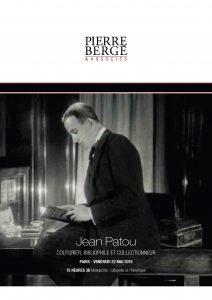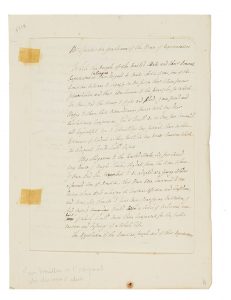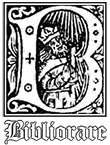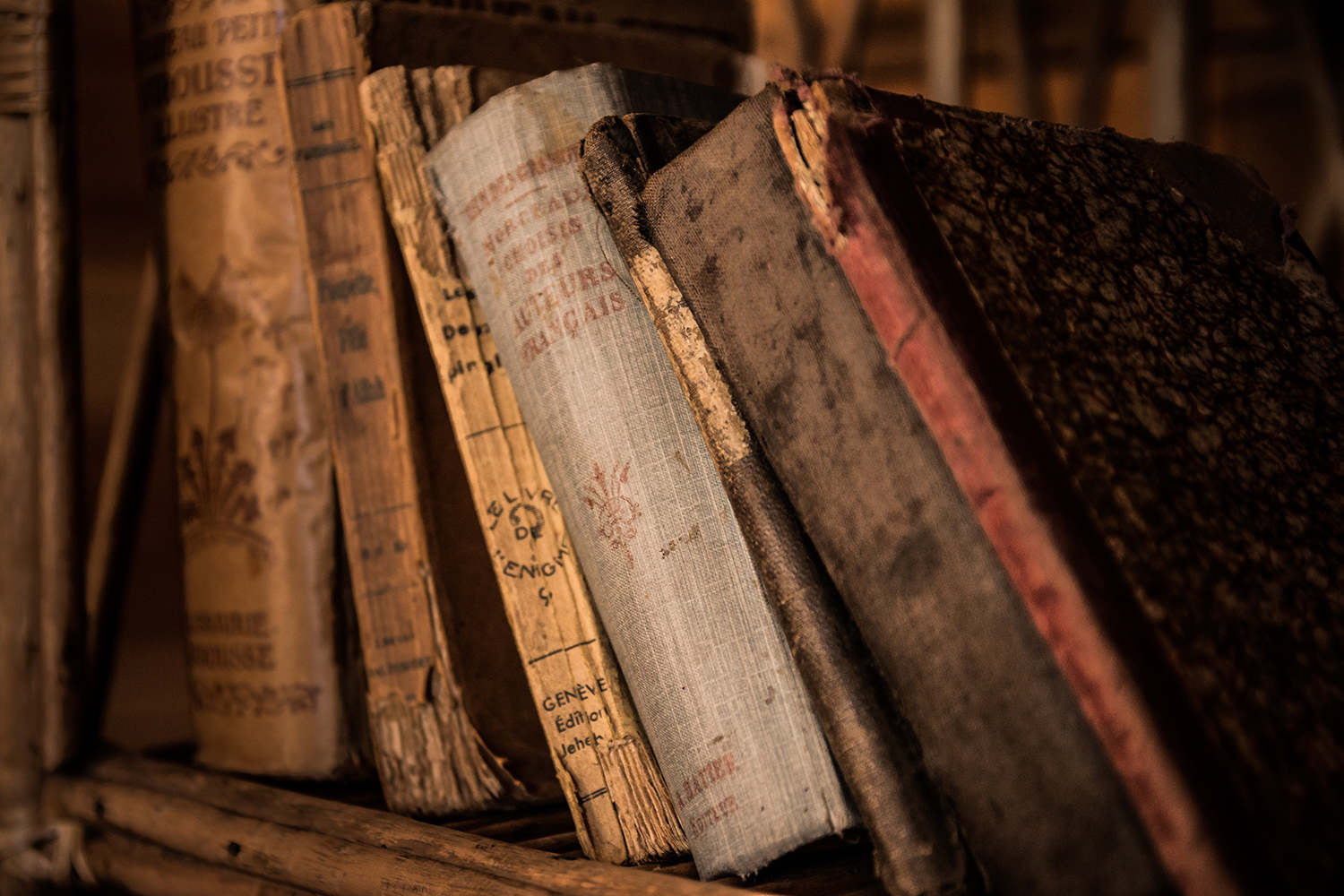LAFAYETTE, Gilbert du Motier, marquis de Manuscrit autographe Washington, après le 10 décembre 1824 2 pp. 1/2 in-4, encre brune, quelques corrections et ratures ; filigrane 'Amies/ Philada’ avec une colombe tenant un rameau d’olivier. Deux...
Description
LE MANUSCRIT AUTOGRAPHE ET CORRIGÉ DU PREMIER DISCOURS FAIT PAR UN ÉTRANGER DEVANT LE CONGRÈS. HONNEUR AUSSI ACCORDÉ À WINSTON CHURCHILL. THE AUTOGRAPH CORRECTED MANUSCRIPT OF THE FIRST SPEECH GIVEN TO CONGRESS BY A FOREIGNER, BEFORE WINSTON CHURCHILL “Mr Speaker an [sic] gentlemen of the house of Representatives. While the people of the United States and their Honorable Representatives in Congress Have deigned to Make choice of me, one of the American Veterans, to Signify in His person their Esteem for our joint Services and their attachment to the principles for which We Have Had the Honor to fight and Bleed, I am proud and Happy to Share those Extraordinary favors with My dear Revolutionary Companions ; Yet it Would Be on My part Uncandid and Ungrateful Not to Aknowledge My personal Share in those testimonies of Kindness as they Excite in my Breast Emotions Which No Adequate Words Could Express. My obligations to the United States, Sir, far Exceed Any Merit I Might Claim ; they date from the time When I Have Had the Happiness to be adopted as a Young Soldier, a favour’d Son of America : they Have been Continued to Me during almost Half a Century of Constant Affection and Confidence : and Now, Sir, thanks to Your Most Gratifying invitation, I find myself greeted by a Series of Welcomes, one hour of Which Would More than Compensate for the public Exertions and Sufferings of a Whole life. The Approbation of the American people and of their Representatives for my Conduct during the Vicissitudes of the European Revolution, is the Highest Reward I Could Receive. Well may I stand firm and Erect When in their Names and by You, M. Speaker, I am declared to Have in Every instance been faithful to those American principles of liberty, equality, and true social order, the devotion to which, as it has been from my Earliest Youth, so it shall Continue to be of my Latest Breath You have been pleased, Mr Speaker to allude to the peculiar felicity of my situation when after so long an absence, I am called to witness the immense improvemens, the admirable communications, the prodigious creations of which we find an example in this city whose name itself is a venerated palladium, in a word all the grandeur and prosperity of the Happy United States who at the same time they (^) secure the complete (^ of) American Independance reflect on every part of the world the light of superior political civilisation. What better pledge can be given of a persevering national love of liberty when those blessings are evidently the results of a virtuous resistence to Oppression, and of institutions founded on the Rights of Man and the Republican principle of self government. No Mr Speaker, posterity has not begun for me since in the sons of my companions and friends, I find the same public feelings, and permit me to add the same feeling in my behalf which I have had the Happiness to experience in their fathers. Sir, I have been allowed forty years ago, before a committee of a Congress of thirteen states, to express the fond wishes of an American heart. On this day, [SO glorious to me : cancelled] I have the Honnor and enjoy the delights to congratulate of the Union so vastly enlarged, on the realisation of those wishes even beyond every human expectation, and when the almost infinite prospects we can wish certainly anticipate. Permit me, Mr Speaker and Gentleman of the House of Representatives, to join to the expression of those sentiments a tribute of my lively gratitude, affectionate devotion, and profond respect". This is the draft of Lafayette’s reply to the welcoming address by the Speaker, Henry Clay, and appears to be the one copied out below (lot 191) by two of Lafayette’s secretaries, seemingly Levasseur and Lafayette’s son George (the text published in the Journal of the House of Representatives, for 13 December 1824). A significant point is that Levasseur, in his journal specifically states that Lafayette delivered his address extempore, without benefit of a written text : “The senate then entered and took their seats ; a few minutes after, two members came for Mr George Lafayette and myself, and conducted us into the hall, to a seat occupied by the public officers. A signal being then given, the doors were thrown open, and General Lafayette entered between Messrs Mitchell and Livingston, followed by the rest of the deputation : the whole assembly arose and stood uncovered in silence. When the general reached the centre of the hall, the speaker, Mr Clay, thus addressed him... [text of Clay’s address follows] ...The profound emotion experienced by the speaker, which had visibly agitated him throughout his address, rapidly extended to the hearts of the auditors, each of whom waited, with benevolent anxiety, for the answer they expected the general would have ready in writing, for so solemn an occasion. But every one was agreeably surprised, to see him advance a few steps towards the speaker, cast upon the assembly looks of feeling and gratitude, and, after a few instants of recollection, deliver, in a sonorous voice, distinctly audible throughout the house, the following extempore reply... [text of Lafayette’s reply follows] ...I will not attempt to depict the deep impression produced by the reply of the general, and by this simple yet majestic scene on the spectators. I fear it would be understood but by few" (Levasseur II, pp. 13-14). This, the autograph draft of that speech, clearly shows Lafayette making revisions, especially towards the end. It seems not unlikely that it started out as a fair copy and then (as is the way with such things) got revised the further he progressed, while still presenting a legible enough text for his secretaries to copy out as the final fair copy. The revisions Lafayette makes consist of tweaks to the phrasing. For example, in the last paragraph, where it originally read : “on this day, so glorious to me, I Can With delight Congratulate", it now reads (in conformity with both secretarial copy and published text) : “on this day, I have the Honor and enjoy the delight to Congratulate". An autograph fair copy of the speech was sent by Lafayette to St Clair Clarke, Clerk of the House (now at the American Friends of Lafayette Collection, Lafayette College ; see Gottschalk, Guide, p.189). If one takes Levasseur literally, all these versions would be memorial reconstructions of Lafayette’s extempore speech. The alternative of course is that Lafayette did indeed prepare it before hand, commit it to memory and then deliver it without benefit of script or notes ; as if it were extempore. Either way, the present manuscript, alongside the one sent to the Clerk of the House, represents the definite text of one of the most memorable speeches in American history. La copie de ce discours fut réalisée sur cet exemplaire par Auguste Levasseur et Georges Washington Lafayette. Elle figure au lot suivant. Le texte fut publié dans le Journal of the House of Representatives, le 13 décembre 1824. Ce manuscrit autographe montre clairement les corrections de Lafayette, surtout à la fin du texte. Il dût entamer la rédaction de ce manuscrit comme une mise au net, mais, entraîné par son élan, il procéda aux corrections situées vers la fin de ce texte, qui sont surtout des corrections de style. Le présent manuscrit, suffisamment clair, put néanmoins servir de source à la copie exécutée par Levasseur et Lafayette fils. Un autre exemplaire autographe de ce discours se trouve selon Gottschalk au Lafayette College. Mais, si l’on prend le texte de Levasseur au sens propre, les versions autographes et manuscrites de ce texte furent postérieures à sa déclamation extempore. On peut aussi imaginer que Lafayette avait écrit d’abord son texte, puis l’avait appris. Nous pensons qu’à l’instar de certains toast présents dans cette collection, Lafayette disposait d’un canevas de quelques mots, prononça son discours, puis en affina le style par écrit dans le présent manuscrit avant de le donner à copier à son fils et à Levasseur.



